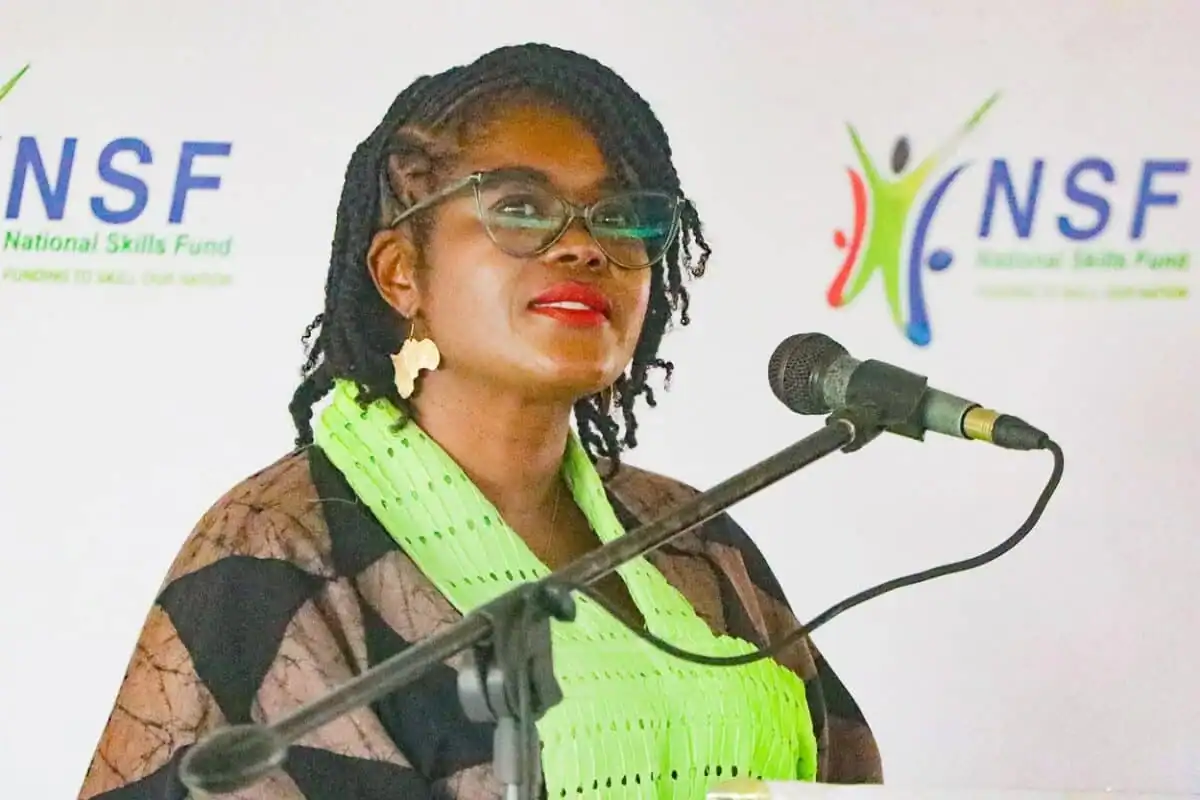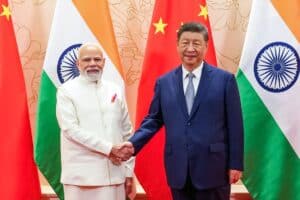Poor leadership, policy missteps, and stakeholder neglect made Nkabane’s position in higher education untenable.

There was little surprise this week when President Cyril Ramaphosa fired Higher Education and Training Minister Nobuhle Nkabane, as her position became untenable.
She misled parliament in a portfolio committee regarding the appointments of Sector Education and Training Authority board members.
Her brief tenure at the helm of one of the most complex and politically sensitive portfolios was also marred by administrative missteps, a breakdown in communication with key stakeholders, and a failure to provide clear, strategic leadership during a critical period for the sector.
While Cabinet reshuffles often raise questions about internal party dynamics, this decision appears to have been driven more by performance and public outcry, rather than politics.
Nkabane inherited a department already under immense strain. South Africa’s higher education sector faces numerous challenges, including underfunding, student debt, overcrowded institutions, and a widening gap between education and employment.
ALSO READ: Why the ANC remains a safe haven for corruption
Rather than stepping into the role with decisiveness and clarity, Nkabane struggled to manage the public’s expectations and the department’s operational demands. Her most notable failure was her mishandling of the crisis surrounding the National Student Financial Aid Scheme (Nsfas).
The rollout of a new direct payment system, using third-party service providers, led to widespread delays, disbursement errors, and student protests across the country. Despite repeated warnings from student unions and technical experts, the department failed to take corrective action or adequately communicate with affected students. Nkabane’s public appearances during this period often came across as defensive and detached, reinforcing perceptions that she was out of depth.
Compounding the Nsfas debacle was a broader failure to engage constructively with the very stakeholders she was meant to lead. Students accused her of ignoring urgent meeting requests during protest actions earlier this year.
ALSO READ: Parliament concludes Seta panel never existed
Several university vice-chancellors also reported difficulty engaging with her office on matters of campus safety, infrastructure development and funding allocations.
At a time when decisive leadership and open communication were essential, Nkabane remained largely inaccessible and silent, allowing tensions to escalate on campuses around the country.
Perhaps most telling, however, was her inability to articulate a long-term vision for the department. Her public addresses were laced with vague commitments to transformation and inclusion, but these sentiments were rarely backed by concrete policy or institutional reform.
No significant advances were made in addressing curriculum reform, expanding digital access, or tackling the mismatch between higher education output and labour market needs. In a sector where transformation must be linked to practical delivery, Nkabane’s leadership simply did not inspire confidence.
In contrast, the promotion of Buti Manamela to the ministerial position represents a return to experience and substance. Having served as deputy minister for several years, Manamela has built a solid reputation for being hands-on, accessible and knowledgeable.
ALSO READ: Five things you need to know about the new higher education minister Buti Manamela
He is no stranger to the challenges of the higher education sector, having spent years working on the reform of TVET colleges, the expansion of access through Nsfas, and engagement with student leaders and academic institutions.
During times of student unrest, Manamela was often the visible face of government, showing up on campuses, listening to grievances, and mediating between conflicting parties. While he is not without criticism, his track record is one of consistent engagement and informed leadership.
Moreover, Manamela brings with him a credibility that few in the current Cabinet enjoy. A former youth activist and leader of the Young Communist League, he understands the socio-economic frustrations of South Africa’s younger generation.
His ability to navigate grassroots activism and high-level governance has made him a rare bridge between communities and the state. His experience and institutional memory make him well-positioned to not only stabilise the department but to chart a new direction grounded in skills development, digital innovation and employability.
Ramaphosa’s decision to remove Nkabane and elevate Manamela should be viewed as more than a political adjustment – it is a statement about the value of competence in public office. For far too long, Cabinet appointments have been seen as rewards for loyalty rather than results.
In this instance, the move suggests a growing recognition that performance must take precedence, especially in departments that impact millions of young South Africans and the future of the country’s economy.
NOW READ: ‘Long overdue’ – Opposition parties welcome Nkabane’s removal
While this shift is welcome, it must not stop here. The education sector, like many others in South Africa, requires leadership that is responsive, accountable and visionary.
Manamela’s appointment provides a window of opportunity. Whether he seizes it will depend not only on his own leadership but also on the political will of the administration to support meaningful reform.
In firing Nkabane and promoting Manamela, Ramaphosa has taken a necessary step towards restoring integrity and functionality in higher education. The hope now is that this signals the beginning of a broader commitment to putting the right people in the right places – for the right reasons.
Support Local Journalism
Add The Citizen as a Preferred Source on Google and follow us on Google News to see more of our trusted reporting in Google News and Top Stories.








